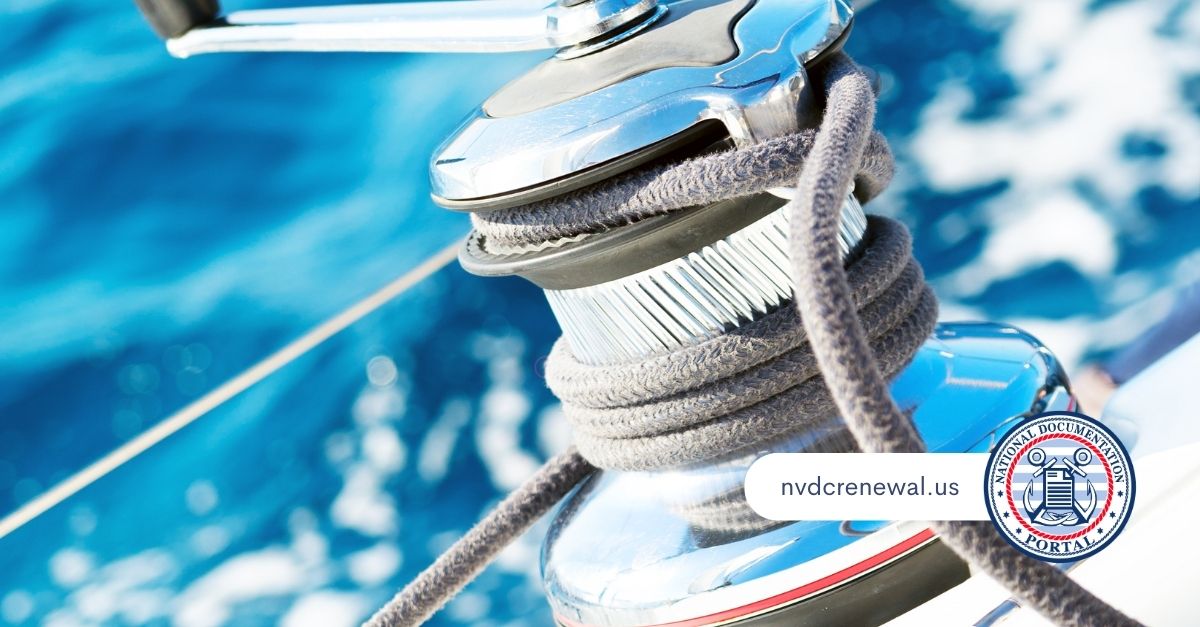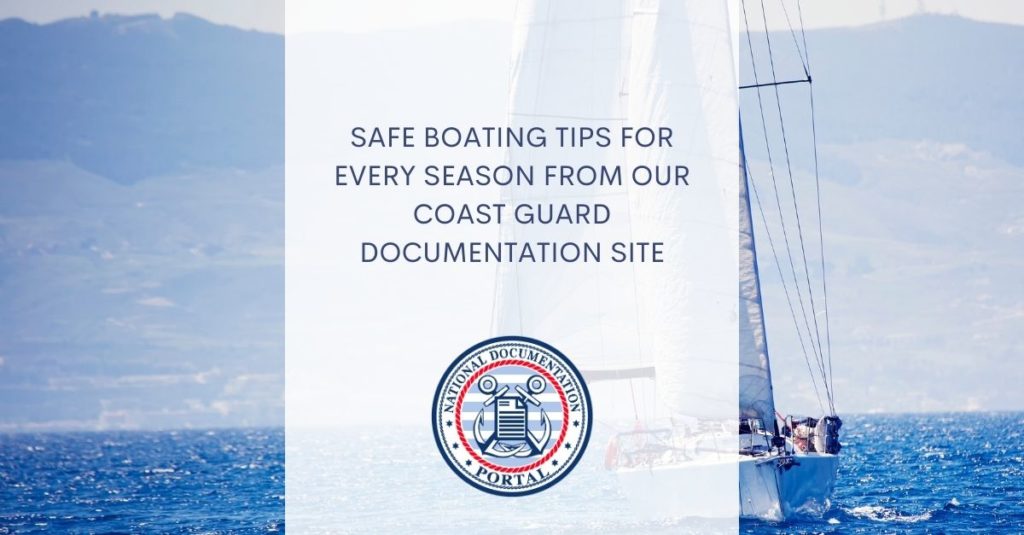Have you been sitting inside all winter just waiting for spring to take your boat back out on the water? Or, are you someone who boats all winter long and is preparing for spring? There are few experiences more exhilarating in the course of a year than that very first boat ride. That said, if it’s been a minute (or, say, a season) there are some safety tips you’re going to want to keep in mind. In addition to being a Coast Guard documentation site, we have always meant for our site to serve as a hub of safety advice as well.
For countless vessel owners, spring boating is a cherished tradition—the beginning, a prelude to the joys of the season. Witnessing the transformation of foliage from the serene vantage point of the water is akin to viewing a series of timeless masterpieces. However, amidst the allure of spring escapades, prioritizing safety remains paramount, a principle we ardently uphold on our platform.
A Gentle Reminder: Navigating the Waters in Spring Requires Adaptation
For those accustomed to summer boating, reliance on familiar landmarks for navigation is second nature. Whether it’s the steadfast guidance of channel markers or the comforting presence of buoys leading the way, these landmarks serve as beacons of reassurance. Yet, as the seasons transition, so too do the reliability of these markers.
For example, authorities often remove them post-August and then not put them back in until well into the spring season, potentially leaving boaters adrift in a sea of uncertainty.
Moreover, as spring is not yet summer, dusk descends earlier in spring, possibly making discerning landmarks increasingly challenging. A good idea: updating your charts, ensuring clarity and precision in navigation amidst evolving conditions.
Prepare Before Night Maritime Journeys
As darkness descends prematurely in the spring, meticulous inspection of vessel lights becomes imperative. Ensuring optimal functionality of navigation lights is paramount, given the heightened reliance on them during autumnal excursions.
Additionally, the expiration dates of emergency flares merit scrutiny, underscoring the importance of preparedness for unforeseen circumstances. While smartphones may offer some illumination, equipping oneself with a dedicated flashlight proves indispensable for facilitating getting on and off the boat, among other important actions.
If you haven’t used these lights or these flares during the winter, be sure to test them before you head out in the evening.

Fuel, Communication, and Beyond: Essential Precautions
Maintaining a full tank of gas is not merely a suggestion but a necessity, particularly as the operating hours of waterfront gas stations may undergo modifications in spring months. That may not be as open as they were during the summer.
Furthermore, investing in a VHF radio (or making sure yours is in good working order) is a good idea. That way, you’ll be able to communicate with land regardless of how charged your phone is.
Making Sure Your Documentation is in Good Order
Spring is the time of year when many boat owners think about getting back on the water, yes, but they also think about taking care of their vessel documentation, too. Some vessels can be documented. Others must be documented.
Your vessel must be fully owned by a U.S. citizen and clock in at a minimum volume of five net tons to be eligible for documentation.
Now, net tonnage might sound like it’s about weight, but it’s actually a measure of volume. A tip: if your boat stretches beyond 25 feet, chances are it meets the five net tons requirement.
Vessels that must be documented include those used for ferrying people or goods on U.S. navigable waters or in the EEZ (Exclusive Economic Zone). Commercial fishing boats cruising those same waters are on the documentation must-do list too.
Help With Documentation Renewal
USCG documentation isn’t a one-time deal—it’s an annual affair. The USCG does not joke around when it comes to expiration—they’ve got fines, detentions, and worse up their sleeves for those who let their documentation lapse and continue to use their vessel.
And speaking of lapses, what happens if you forget to renew? Well, your vessel’s documentation will expire, and you’ll lose some of the perks that come with it. So, mark those renewal dates on your calendar and make sure to keep the USCG happy to keep reaping the benefits. Renewing your documentation is a breeze—just hop on our site and get it done.
Or, instead of having to go year by year, you can even renew for up to five years in advance. Need it in a hurry? We’ve got rush processing options that’ll put your request at the front of the line for lightning-fast service.
Consistent Support: USCG Documentation Across Seasons
As seasons shift and temperatures vary, our dedication to vessel owners and their Coast Guard Documentation remains constant. Our platform is a one-stop resource, meeting the documentation requirements of vessel owners year-round.
During the winter months, many of our clients finalize necessary paperwork to prepare for upcoming maritime activities. As spring arrives, now is the ideal moment to complete your Coast Guard Documentation forms.

